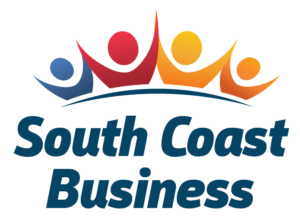“Money Smart” is an a la carte program being offered through the expertise of Pathfinder Bank to cover a host of topics to help people better manage, plan and spend their hard-earned dollars. The curriculum will accompany the Money Smart Education Program offered through the FDIC. You can customize your education!
- Understanding your values can help you set achievable financial goals.
- Setting SMART goals (Specific, Measurable, Action-oriented, Reachable, and Time-bound) helps you achieve your hopes and dreams for the future by providing a realistic plan to follow.
- External influences impact financial choices. Use strategies to stay focused on your goals.
- Understand your income. That is the first step to using it to meet your needs.
- Understand your expenses. That will help you decide how to save, share, and spend your income.
- Consider your needs and shop around for financial products and services.
- Know the general process for opening a savings or checking account, including options if you are initially unable to open an account.
- Learn the rules of your account and keep track of how you use it. This can help you keep costs down and develop a positive banking relationship.
- Prepaid cards allow you to spend or access money loaded onto them. They usually aren’t linked to a checking or savings account. Before you use one, review its features and fees.
- Use a monthly spending and saving plan to guide how you use your money.
- Prioritize which bills to pay first when money is short.
- Set aside some money every time you get income. Regularly saving money, even if only a small amount, can make a big difference over time.
- Consider the advantages and disadvantages of savings options before choosing where to build your savings.
- An emergency savings fund is part of the foundation of financial health. Setting aside $500 to $1,000 can cover many unexpected expenses.
- Create a plan to save money for your goals.
- Some public benefits may be reduced or removed when you exceed income or asset limits. However, some special accounts enable people to save more money without losing eligibility for their benefits.
- Assets can lead to wealth and financial security.
- Net worth is a good measure of your financial stability. Calculate your net worth by subtracting your liabilities (money you owe others) from your assets.
- A car can be a productive asset when it helps you get other assets. Plan ahead to get a car you can afford with as little debt as possible.
- Training and education can be productive assets when they give you a strong chance of securing a better career or a higher paying job. Plan ahead to pay for them with as little debt as possible.
- There are different types of housing. To help prioritize your options, start by defining what safe and secure housing means to you.
- An affordable payment for housing is one you can reliably make each month.
- Ways to protect yourself as a renter include reading your rental agreement or lease, getting renter’s insurance, and knowing your rights and responsibilities.
- Be sure you can afford the payments before getting a loan. Also, know how much the loan will cost and what will happen if you don’t make the payments on time.
- To help you prepare to apply for a loan, consider what lenders look for when they decide to loan money.
- Even if someone helps you manage your money, understand the terms of a loan before you commit to it.
- Know how credit cards work so you can more effectively shop around for one that meets your needs.
- Credit cards can be convenient, but manage them carefully to keep costs down and avoid damage to your credit.
- Understanding your debt is the first step to managing it.
- Consider how debt works so you can make informed decisions about it.
- Develop a plan to reduce your debt and get help if needed, such as from a trained credit counselor.
- Don’t ignore a debt collector. Make sure any debt you are asked to pay is valid as soon as possible. Get help if you need it.
- When it’s time to pay back your student loans, consider your options and understand what will happen if you are late with payments. Your loan servicer can help you explore repayment plans.
- If you receive a medical bill, make sure it is valid. If you can’t afford to pay it, try to set up a payment plan.
- Understand how high cost debt works. Identify lower cost options for the future.
- Your credit history can affect your access to credit, loans, jobs, housing, insurance, and other important services. Understanding your rights helps you know how to protect your credit history.
- You can take steps to improve and manage your credit scores. This includes paying your bills on time and as agreed.
- Get and review your credit reports at least once every 12 months to make sure the information is accurate.
- If you find errors on your credit reports, file a dispute right away. Be sure to keep records and follow up.
- Your credit history does not have to be your credit future.
- Buying a home is a process. Start by making sure you’re ready to buy and figuring out what you can afford.
- Know your loan. Learn about your financing options for buying a home and shop around to get the best deal for you.
- Get help with the home buying process. Interview before you hire help and ask for references. Understand what services you will receive and how much they will cost.
- Save time, money, and stress when a disaster strikes by making financial preparations.
- Develop an initial plan to recover financially from a disaster. Watch out for scams.
- Being aware of risks to your assets prepares you to take steps to reduce those risks.
- You can reduce your risk of identity theft. Help is available if it happens to you.
- Insurance provides protection from financial loss. Keep accurate records of your assets and any damages to your property.


